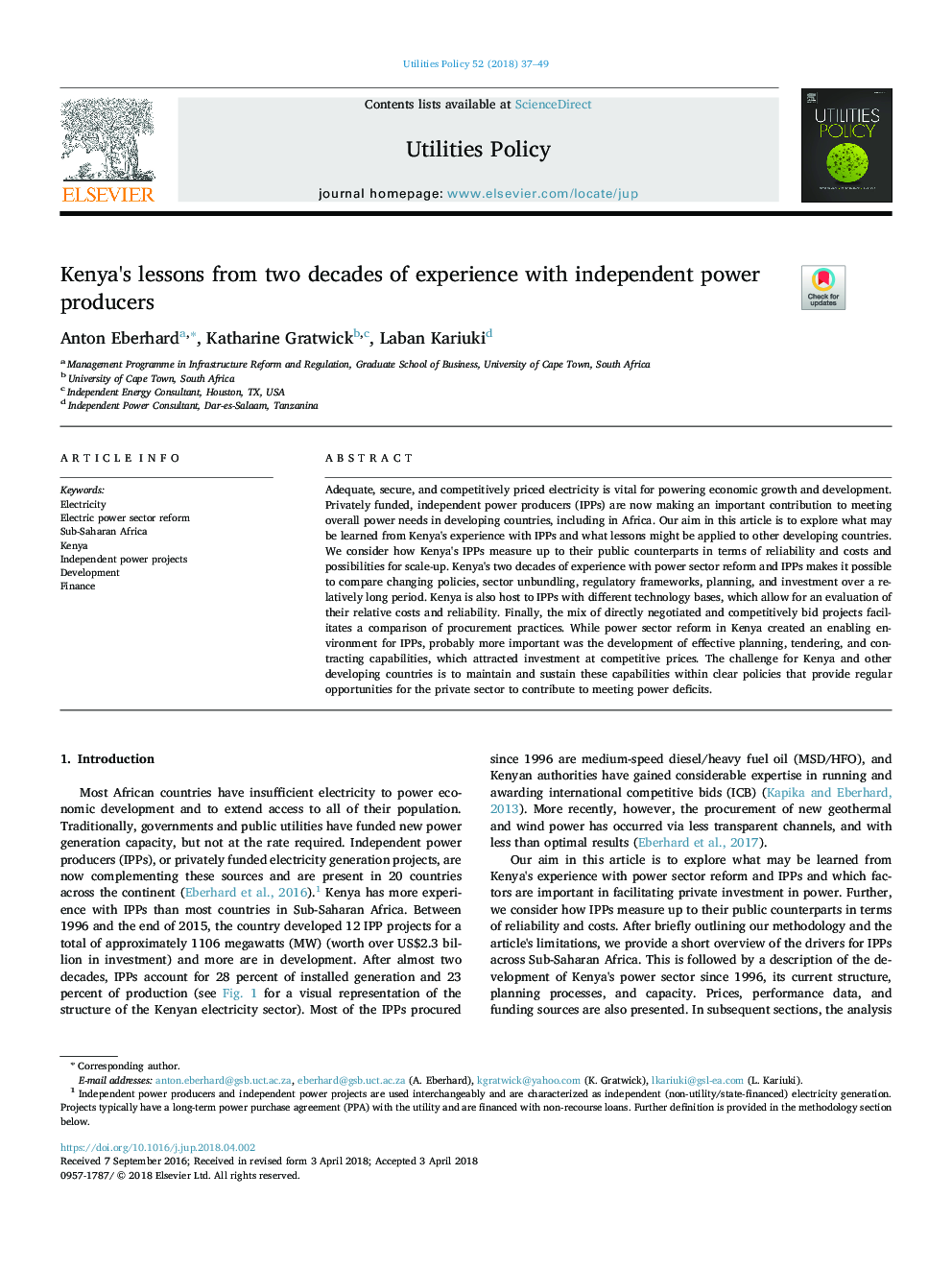| Article ID | Journal | Published Year | Pages | File Type |
|---|---|---|---|---|
| 7411166 | Utilities Policy | 2018 | 13 Pages |
Abstract
Adequate, secure, and competitively priced electricity is vital for powering economic growth and development. Privately funded, independent power producers (IPPs) are now making an important contribution to meeting overall power needs in developing countries, including in Africa. Our aim in this article is to explore what may be learned from Kenya's experience with IPPs and what lessons might be applied to other developing countries. We consider how Kenya's IPPs measure up to their public counterparts in terms of reliability and costs and possibilities for scale-up. Kenya's two decades of experience with power sector reform and IPPs makes it possible to compare changing policies, sector unbundling, regulatory frameworks, planning, and investment over a relatively long period. Kenya is also host to IPPs with different technology bases, which allow for an evaluation of their relative costs and reliability. Finally, the mix of directly negotiated and competitively bid projects facilitates a comparison of procurement practices. While power sector reform in Kenya created an enabling environment for IPPs, probably more important was the development of effective planning, tendering, and contracting capabilities, which attracted investment at competitive prices. The challenge for Kenya and other developing countries is to maintain and sustain these capabilities within clear policies that provide regular opportunities for the private sector to contribute to meeting power deficits.
Related Topics
Physical Sciences and Engineering
Energy
Energy (General)
Authors
Anton Eberhard, Katharine Gratwick, Laban Kariuki,
